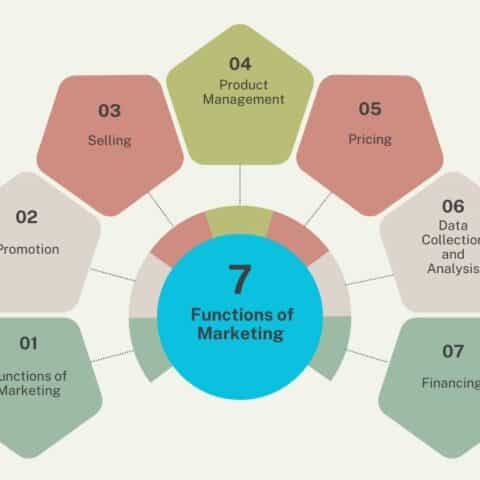Terms such as business day, working day, etc., are frequently used in our daily discourse, but only some people give them any consideration, knowing what they stand for or how different they are. These terms are mainly used when referring to business hours, delivery time, and workplace schedules, although they can be misleading. Well, let us explain how long is a business day vs a working day and other essential information about it.
What Is a Business Day?
A business day is usually the day of the calendar week starting from 0 on Monday to 6 on Sunday when various business activities occur. A business day runs from 8:00 AM to 5:00 PM for most companies. However, the time may vary depending on the character of the organization or sector in which they are working.
Here are the key characteristics of a business day:
- Time frame: It is generally expected from 9 AM to 5 PM (depending on the practice).
- Excludes weekends: The business days are usually such that they do not include Saturday or Sunday.
- Excludes public holidays: Weekends and national holidays such as Christmas or New Year are also removed from business days.
- Common for customer service: When addressing customer support or using services to follow up on inquiries about orders and deliveries, all the time intervals are specified in business days.
What Is a Working Day?
A working day is dissimilar to a business day, but the two terms are closely related. It ordinarily refers to the number of days that the person works or the working days in a week from Monday to Friday or sometimes hours for a particular work or a particular type of work, etc. The working day doesn’t necessarily follow the 9:5 to 10 business day schedule as 00 AM to 5:00 PM.
Some important distinctions about working days:
- Varies by job and industry: For instance, a nurse or a factory worker will have a different working time than someone who works in a fixed office. Some workers may be on shift work, so their ‘working day’ may be in the evening or over the weekend.
- Can include weekends: Some industries require the workers to work during the weekends or shifts, so the working days may not strictly be limited to Mon – Fri.
- No fixed start or end times: This must be common with office employees where one has to come to work at around 9:00 AM- 5:00 PM, but on a working day you can be on a 4-hour shift, 6-hour shift or an 8-hour shift depending on the work you are engaged in.
Business Day vs Working Day: The Key Differences
Now that we’ve defined each term, let’s look at the key differences between them:
- Scope of Time:
- Business Day: This refers to particular days of operations, usually given Mondays through Fridays, between 9:00 and 17:00 hours on the respective day. It does not include Saturday, Sunday, or any other day acknowledged as a public holiday.
- Working Day: This can be defined also in terms of the number of days a person spends at his workplace. According to the given employment position, these can be during working hours, shift work, weekends, and evenings.
- Standard Hours:
- Business Day: Business Day: This is mostly restricted to just a few hours from 0900HRS to 1700HRS, depending on the company or the country involved.
- Working Day: It may be flexible according to the employee’s working hours and type of job, and sometimes it may go up to evenings and weekends.
- Weekend and Public Holiday Considerations:
- Business Day: Excludes Saturdays and Sundays and any other public holidays. For instance, if a service promises delivery in 3 business days and a client submits the order on Friday, the business day will count as Monday even when it’s a public holiday.
- Working Day: Some employees would work during the weekend or public holidays, which can be due to some employees’ jobs, such as shifting services that include health care and customer service. In many firms, for example, weekends are separate from working days, making matters worse for many office workers.
Why Does It Matter?
Understanding the difference between a business day and a working day is important for several reasons:
- Planning and Expectations: If you are involved in business transactions, it is helpful to find out that the counting is either ‘business days’ or ‘working days,’ and the difference helps one to know what to expect. For instance, when you are waiting for a refund or delivery, it becomes easy to compare business days and working ones.
- Customer Service: When reporting the time it will take to get back to the customers with the answers, make an order, or process the return, many companies refer to a business day. If a company is closed during the weekend, it may take one or two days to respond to the mail.
- Legal and Employment Contexts: If the terms “business day” and “working day” appear in the legal agreement of employment contracts, then they refer to two different things. For instance, in employment, the working day can be the period an employee spends at work; business days can mean days within a business contract in which the delivery of goods or services must be completed.
Final Words
The terms “business day” and “working day” are both used in connection with time frames related to work; however, both are different from each other. A business day is any day between Monday and Friday within business hours and excludes any weekends and other general holidays. On the other hand, working hours are working days; this is the time an individual spends at work, whether due to the type of job, the industry, or even shift work.
Knowing such differences will make it easier to anticipate work deadlines, customer service replies, and business transactions. It also helps you have realistic anticipation when waiting for a package, processing a refund, or reviewing a work contract.














